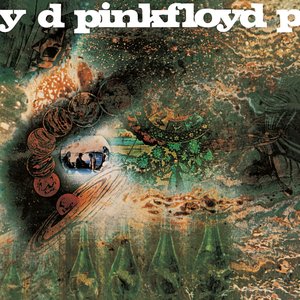Published on Jul 7, 2005
The second release from Pink Floyd is in many ways a new
beginning. Founding member Syd Barrett had succumbed to the ravages
of LSD and mental illness, and was replaced by David Gilmour. Along
with Barrett went the nonsense-pop songs that peppered their early
work, replaced with a harder-edged sound and further ventures into
space-rock and other psychedelic freak-outs that would form the
kernel of the band’s identity in the future. This was certainly
natural, as Barrett’s clever little pop ditties had got them radio
exposure, but it was their experimental live shows that had made
the strongest impression on their fan base.
Saucerful suffers a bit from a lack of cohesion. From its
earliest days many have complained that it sounded thrown together.
There may be some validity to this claim, but you have to keep in
mind that this is a band regrouping from a major catastrophe.
Barrett didn’t just leave the band, he slowly imploded in a
psychedelic vortex and took his time doing it, with the band trying
to cope with this very damaged person who was a long time friend
and companion, and agonizing over the decision to replace him. This
is on the tail of a fairly successful debut album, a couple of
well-charting singles and a fan base in London clamoring for live
shows. I can imagine that after getting Gilmour on board they were
hot to get some tracks laid down. In the music business, absence
rarely makes the heart grow fonder, so it was critical that they
have a new recording to keep them in the public eye.
There are still arguments going on to this day regarding the
departure of Barrett and the subsequent replacement by Gilmour.
Whether good or bad, the new Floyd took a more mature direction,
and an even more experimental one than the original lineup. Gilmour
proved to be an excellent fit. His mercurial guitar style and smoky
voice would add new depth and flexibility to the band’s sound.
Saucerful has its share of hits and misses, but it largely
stands out for its experimental nature, and for eschewing the pop
songs of Floyd’s early days. At a time when music was in an
experimental growth spurt of mammoth proportions, it stands as one
of the most important albums of the era. Their space-rock leanings
are shoved to the forefront from the opening track “Let There Be
More Light” and the now classic “Set The Controls For The Heart Of
The Sun,” continuing the experimental psychedelic trips that were
the highlight of their debut album. Going a few notches up the
freak-out scale is the instrumental title track, 12 minutes of
disjointed chaos. Interesting for a listen or two, but lacking any
truly memorable moments.
Keyboardist Richard Wright pens two tracks, “Remember A Day” and
“See-Saw,” both of which are a little too melancholy and laid back
to stand out in this set. Roger Waters makes the first of his many
anti-war statements with “Corporal Clegg,” a tongue-in-cheek track
about a war veteran that may or may not have gotten a medal from
the Queen, and his doting mother.
The closing track pays respect to their lost member. Barrett’s
final Floyd composition “Jugband Blues” is typical of his penchant
for pop-nonsense. Other than being a nice farewell to Syd, this
song adds nothing to the album as a whole.
Saucerful is a bit uneven to be sure, but it’s hard to
dismiss the importance of this album on the growth of one of the
most successful bands ever, and the band’s subsequent impact on the
burgeoning progressive rock movement. It may not be Floyd’s
artistic high point, but it’s a benchmark of how much they
influenced the world of music on the whole, and laid the foundation
for their later work.
